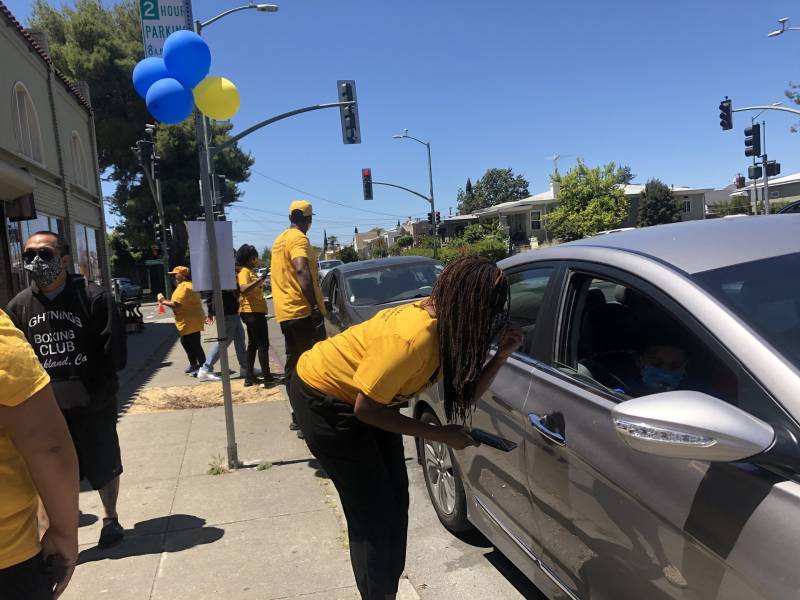“If there are three children, each would have a hotspot just to ensure that there won't be any issues with multiple lines slowing it down to the point kids can't track video,” said Sarikey, adding that the district tested various products and consulted with teachers on the purchase.
“We heard a lot from teachers that they spent a lot of time doing tech support during shelter in place, helping kids troubleshoot things that were coming up,” Sarikey said.
He added that the district will also provide high-speed broadband to some families at a subsidized rate.
At a recent board meeting, OUSD Superintendent Kyla Johnson-Trammell said thousands of students still don't have the digital connections they need.
Seth Hubbert, executive director of Tech Exchange, an Oakland-based nonprofit working with the district, doesn’t expect those computers and other devices to be delivered until early August. That's when his team will be tasked with entering all the equipment through a data system developed for the district by Salesforce, and then deliver them to school sites where students can pick them up.
“We anticipate about 110 pallets worth of computers, in batches of 1,000, so it's going to be just an awesome visual,” Hubbert said. In preparation, Tech Exchange has leased extra warehouse space and hired temporary staff to help process the computers quickly, while adhering to COVID-19 social distancing protocols.
To fill the gap, OUSD distributed some 18,000 district-owned computers to students throughout the spring, and Hubbert said thousands more are still available for students who need a device now.
But those loaner computers are district property and can’t be gifted to students, said Hubbert. The plan is to swap them out with the new Chromebooks that students can keep.
Still, some Oakland teachers remain skeptical about the district’s ability to deliver on its promise of equipping students by the first day of school.

